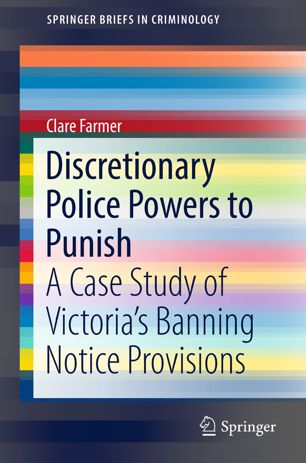

Most ebook files are in PDF format, so you can easily read them using various software such as Foxit Reader or directly on the Google Chrome browser.
Some ebook files are released by publishers in other formats such as .awz, .mobi, .epub, .fb2, etc. You may need to install specific software to read these formats on mobile/PC, such as Calibre.
Please read the tutorial at this link: https://ebookbell.com/faq
We offer FREE conversion to the popular formats you request; however, this may take some time. Therefore, right after payment, please email us, and we will try to provide the service as quickly as possible.
For some exceptional file formats or broken links (if any), please refrain from opening any disputes. Instead, email us first, and we will try to assist within a maximum of 6 hours.
EbookBell Team

4.7
76 reviewsThis book uses an Australian case study to shine a much-needed spotlight on discretionary police powers to punish, and their implications for justice and human rights. It offers a revealing analysis of the problematic rationales that secured the legislative passage of banning notice provisions through the State Parliament of Victoria, Australia in 2007, which occurred amidst similar developments in other jurisdictions across the world: in the UK, New Labour’s “tough on crime” initiative in the 1990s, responses to the post 9/11 terror threat, and more recent lockout laws in Sydney, Australia. The Victorian case study offers a range of datasets including Hansard parliamentary debates, Victoria Police data, media coverage and interviews with magistrates. This material provides critical insights into the broader consequences of discretionary police powers, including their effect upon the separation of powers, individual rights, and the steady and largely unchecked proliferation of discretionary police powers across most Australian jurisdictions. On the tenth anniversary of these first Victorian on-the-spot banning powers, this Brief provides a sound basis for subsequent criminological explorations of the effectiveness of banning in tackling issues of disorder, deterrence and punishment, and of the broader challenge of balancing individual rights and community protection.